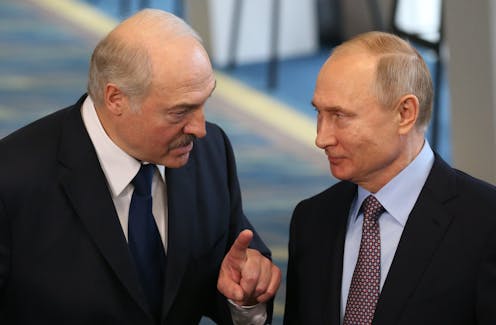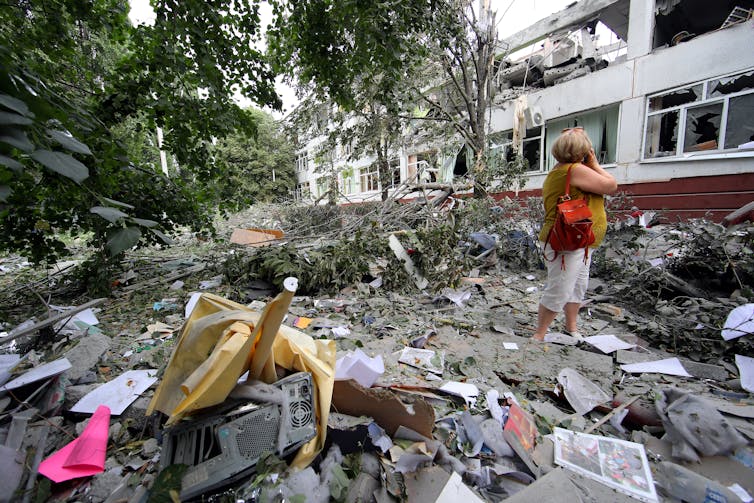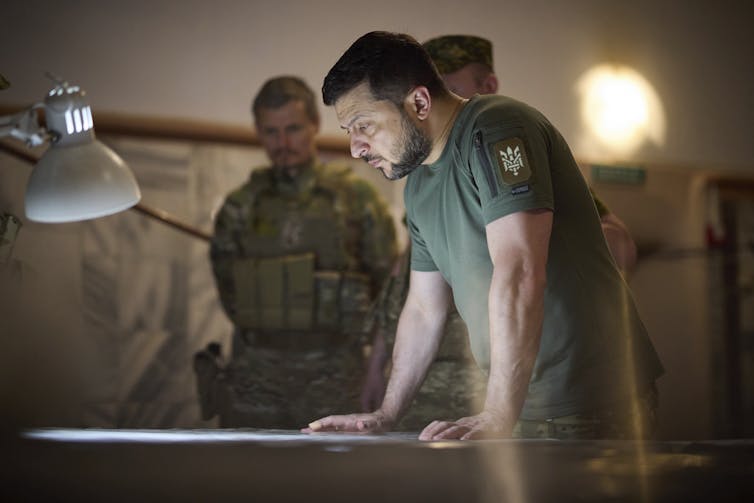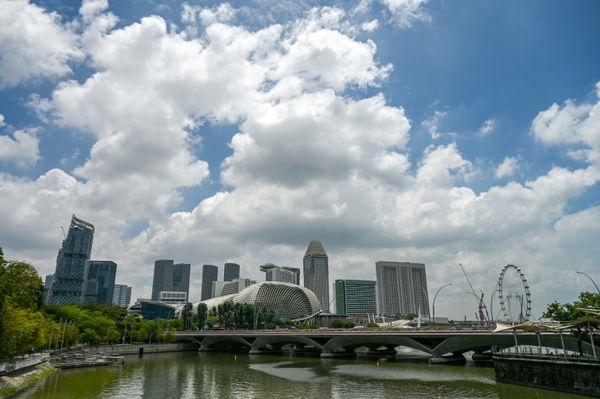
Oleg Morozov, a member of the Russian parliament and an ally of President Vladimir Putin’s, made what sounded much like a threat in May 2022.
Poland should be “in first place in the queue for denazification after Ukraine,” he said.
Just days earlier, pro-Putin Moscow city assembly member, Sergey Savostyanov, asserted that after Ukraine, Russia needs to drive alleged Nazis from power in six more countries: Estonia, Latvia, Lithuania, Poland, Moldova and Kazakhstan.
Just a few months following the Russian invasion of Ukraine, which was made under the false pretense of denazifying the government of that country, such claims might send chills down the spines of the people in those countries as well as of many keen observers of the region.
It could be argued that such claims of denazification “might be dismissed as the hyperbolic expression of one individual in the overheated atmosphere of Russia today,” as scholar and former diplomat Paul Goble recently described it. Yet it’s evident that for over a decade, Russia has used lies and disinformation, including many references to denazifiying Ukraine, to build a case specifically for the Ukraine invasion.
And unsupported claims of denazification have been an excuse for Russian international aggression since World War II.
Putin and his allies have attempted to expand the meaning of “Nazism” to essentially render it meaningless – but still useful to them. Anyone who opposes Putin’s government can be labeled a Nazi, representing basically the worst and most horrible enemies Russia has ever faced in its history, the battle against whom cost almost 1 in 6 Soviet lives, civilian and military.

The opposition is fascist
As a scholar of Russian diplomatic communication, I have researched Russian use of language to justify its military interventions. I found that Russian diplomats inconsistently use and misuse international law expressions to justify Russian actions aimed at gaining either more influence or territory.
And the label “Nazi” has been selectively used and misused to target the perceived opponents of the Putin regime, at times with some success. Indeed, on one extreme, according to Putin’s propogandists, Nazism doesn’t even have to be antisemetic. To Russian officials, anyone who expresses anti-Russian sentiment can be denounced as a Nazi. That allowed Russia to claim that Ukraine was run by Nazis, even though President Volodymyr Zelenskyy is Jewish.
In May 2022, Belarusian President Alexander Lukashenko, a strong ally of Putin’s, accused the West of supporting Nazi ideas. Also in May, the Russian Ministry of Foreign Affairs articulated that the Israeli government is supporting neo-Nazis in Ukraine. This assertion came right after Israel demanded an apology for Russian Foreign Minister Sergey Lavrov’s claim that Hitler had Jewish origins.

Long-running accusations
Nowhere has Russia been more persistent with accusations of Nazism than in Estonia and Latvia, two countries with sizable Russian-speaking populations and membership in the European Union and NATO.
For decades, Russia has alleged that fascist ideas have been circulating in these countries on a large scale and have become mainstream. In 2007, Putin said that he is dismayed by Estonia and Latvia’s alleged reverence for Nazism: “The activities of the Latvian and Estonian authorities openly connive at the glorification of Nazis and their accomplices. But these facts remain unnoticed by the European Union.”
In 2012, Russia reacted angrily to a recent gathering of World War II veterans in Estonia and stated that it was aimed at “glorification of former SS-men and local collaborationists.”
In 2022, Latvia designated May 9 as the Day of Remembrance for those killed in Ukraine as a result of the Russian invasion. This move was sure to irk some folks in Russia, as Russia celebrates the Soviet victory over the Nazis in World War II on the very same day. Latvia was at the time also debating the removal of monuments to Soviet-era soldiers.
In response, Putin’s spokeswoman Maria Zakharova said that “the ruling regime in Latvia has long been well known for its neo-Nazi preferences.”
The pot calling the kettle
Meanwhile, another debate rages about whether Russia under Putin itself can be seen as a fascist state. On one hand, Putin’s dictatorship has embraced expansionist militarism, crushed domestic opposition, promoted toxic nationalism and revived Russian patriotism by building national identity around the Russian defeat of Nazi Germany.
On the other hand, those who argue that Russia may be a repressive and aggressive dictatorship – but not a fascist state – note that fascism is a fundamentally revolutionary ideology and tends to be accompanied with mass mobilization. Meanwhile, Putin is viewed by many as a reactionary right-wing dictator who is not guided by revolutionary ideas, does not have much charisma and is governing a largely passive population. His supporters will likely continue labeling perceived adversaries as Nazis. Such rhetorical groundwork could eventually lead to more wars beyond Ukraine.
Juris Pupcenoks has received funding from the Latvian Ministry of Education and Science.
This article was originally published on The Conversation. Read the original article.







